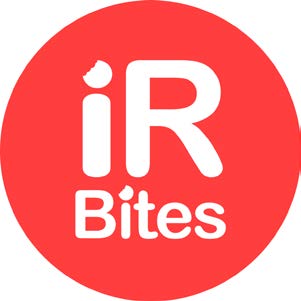
Speaking on behalf of ‘IR Bites’—a group whose mission is to raise the baseline public understanding and level of education on interventional radiology (IR)—medical student Milindu Wickramarachchi details their aims, the importance of elevating knowledge of IR and a pragmatic guide to running educational workshops.
IR among medical students, doctors, healthcare staff and the general public is very much a foreign field. As a medical student myself, the only hint of IR provided by Cambridge Medical School is showing the odd digital-subtraction-angiogram in passing during a lecture.
Personally, I think this is unacceptable. As technology has developed from the age of Charles Dotter, IR has had an exponential increase in its use in modern healthcare—from the simple yet elegant angioplasty to the excruciatingly detailed work of brain aneurysm coiling. This has not, however, been matched with an exponential increase in awareness of IR. By enabling further education on IR, we can foster innovation through collaboration of different specialities with radiology colleagues, enabling development of new techniques and breakthroughs in patient care.
If we are to increase interest and awareness of IR as a specialty, and its role in modern healthcare, drastic steps need to be taken to educate medical students, doctors, healthcare staff and the public.
Fostering awareness through an environment of learning and collaboration, we propose the introduction of new ‘IR Bites’ workshops—IR themed workshops held locally by people in the field, with the aim of raising the baseline public and medical understanding and level of education on IR.
The impetus for launching IR Bites workshops stems from a recognised need for targeted and accessible educational opportunities in IR. These workshops aim to bridge the gap between theoretical knowledge and practical application, offering a unique blend of lectures by professionals in the field and hands-on experiences with cutting-edge equipment that caters to the diverse learning preferences of participants.

Having carried out two of these workshops in 2023, head organiser and creator of IR Bites, Chris Grieco (Cambridge University Hospital, Cambridge, UK) has received overwhelmingly positive feedback. Participants reported:
- Improved theoretical understanding of IR and how it relates to modern healthcare
- Increased exposure to IR as a specialty
- Increased understanding of the career path in IR
- An increased need for their medical school to educate on IR
- That they are likely to consider IR as their future career
All the points mentioned above are exciting future prospects for Interventional Radiology as a specialty, especially due to the critical shortage of interventional radiologists and training bottle-necks we are currently experiencing.
We propose a template for these events, such that they can be reproduced at any hospital/trust throughout the UK or abroad.
10 Step Guide: How To Run An IR Bites Workshop
- Book a room and set the date: The first crucial step is to secure a venue and schedule the workshop, recognising that the date is pivotal for event progression.
- Create a poster: Use design tools like Canva to craft an engaging poster, facilitating effective promotion through various channels.
- Build industry contacts and secure sponsorship: Attend IR events, connect with professionals in-person and virtually through social media like LinkedIn and X. Leverage industry contacts to enhance workshop quality and visibility. Engage industry representatives to sponsor refreshments. We recommend pizza. Our speakers and delegates like pizza.
- Identify speakers: Personally approach speakers, we suggest two consultants and one registrar each to give a 15 minute talk, to ensure varied perspectives and allows for a diverse question and answer session.
- Finalise the agenda and plan the venue layout: Structure the workshop with a well-defined agenda, balancing informative talks with hands-on sessions. Strategically plan the workshop space, accommodating seating arrangements and industry demo setups, then distribute this so industry helpers can adequately prepare their logistics.
- Streamline event registration: Utilise platforms like MedAll for seamless event registration, pre/post questions, and certificate distribution. This also allows for hybrid events with both local in-person and virtual attendees from around the world.
- Implement marketing strategies: Employ diverse marketing strategies, including emails, newsletters, social media posts and posters with QR codes.
- Coordinate pizza logistics: The most important step! One week before the event, confirm pizza orders and ensure industry confirmations to avoid disappointment. Check with the food policy with the venue.
- Collect training kit: Check with industry representatives what kit they are bringing and source additional expired or training kit from your local IR department with permission from the charge nurse and lead doctor from the department. Photograph the borrowed kit before moving it so you can return it all exactly as you found it.
- Prepare for Dropouts: Anticipate last-minute changes by maintaining a reserve list of attendees, speakers, and industry representatives.
- Bonus Tip: Under Promise, overdeliver: Enjoy the workshop, savour the pizza, document attendance, and encourage immediate feedback using QR codes for a more impactful experience.
By following the above template, these events can be easily facilitated throughout different healthcare settings around the world. Medical students and doctors, healthcare staff and the public can be educated further about Interventional Radiology.
Along with the success of our previous two workshops (held in Taunton and Cambridge, UK), we are eager to improve on the format of these workshops. One major roadblock we faced was the lack of availability for the online participants to engage in the hands-on workshops. This could be improved by having a dedicated specialist talking through the equipment and doing a demonstration on camera (either pre-recorded or live). Another suggestion we received was having an ‘icebreaker’ where the leaders of the workshop could bust some myths the audience had about IR as a specialty. By acting on these points, we can hopefully increase the reach of courses in the future.
We aim to expand our reach of the IR Bites Network and hold courses across the UK and further afield with the next full day IR Bites Workshop scheduled for Thursday 6 June 2024 in Cambridge, UK. As IR Bites Workshops continue to evolve and grow, their impact on shaping the future of IR education and awareness is undeniable.
 If you want to be involved in organising an IR Bites workshop local to you or just stay up to date with future IR Bites Workshops scan the QR code to join our community and groups on WhatsApp: https://chat.whatsapp.com/CwUWim9JxIG62myRc7M59s
If you want to be involved in organising an IR Bites workshop local to you or just stay up to date with future IR Bites Workshops scan the QR code to join our community and groups on WhatsApp: https://chat.whatsapp.com/CwUWim9JxIG62myRc7M59s
Milindu Wickramarachchi is a Year 5 Medical Student at University of Cambridge who recently attended an IR Bites Workshop and here shares his thoughts and reflections. The workshop event was organised by Chris Grieco with help from colleagues within the Radiology Department and industry partner representatives.










